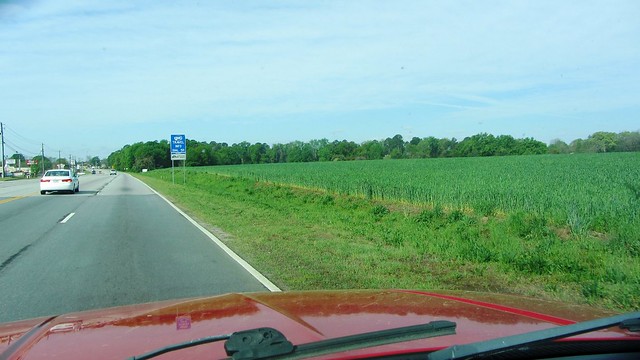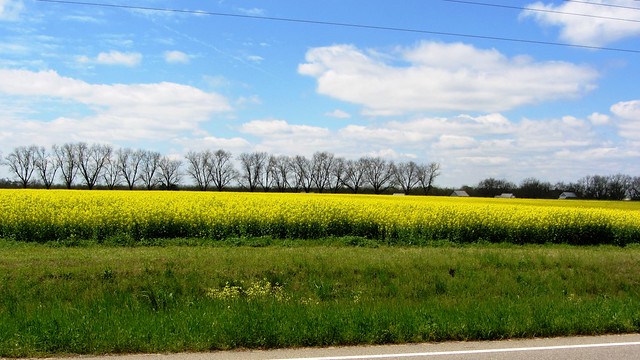Impermanence is swift. Life-and-death is the great matter.
"Why Can't I Be Different and Original . . . Like Everybody Else?" - Viv Stanshall
Wednesday, April 30, 2014
Tornado
Impermanence is swift. Life-and-death is the great matter.
Tuesday, April 29, 2014
Guns
As you may have heard, in the latest in a much-too-long series of similar events, a gunman walked into a Fed Ex facility in Kennesaw, Georgia. Reportedly loaded with guns and looking like Rambo, he wounded several victims before turning the gun on himself and committing suicide.
You might remember Kennesaw, Georgia as the town that in 1982 passed an ordinance requiring the head of every household to own a gun. I doubt there's a better armed town in Georgia, one of the better armed states in this not-exactly-unarmed country. Despite all this, a bad man with a gun still managed to do bad things in this town.
What you may not have heard is that last week a man carrying a gun stalked a children's baseball game in Forsyth County, Georgia. "He's just walking around [saying] 'See my gun? Look, I got a gun and there's nothing you can do about it.' He knew he was frightening people. He knew exactly what he was doing," a witness told the press.
Forysth County deputies questioned the man and found that he had a permit for the handgun. Authorities said that since the man made no verbal threats or gestures, they could neither arrest him nor ask him to leave the park. However, concerned parents grew so alarmed by the man's behavior that they brought the game to a halt when he declined to leave the parking lot overlooking the baseball field.
So this is our NRA-sponsored brave new world - a state where armed men can intimidate children in a ballpark with a gun and the police have no authority to stop him, and despite all the guns, a suicidal madman can still walk into a Fed Ex and shoot the workers before killing himself.
With Georgia's new guns-everywhere rule and increased stand-your-ground rights, I don't see things getting better anytime soon.
Monday, April 28, 2014
Sunday, April 27, 2014
Weeds, While Despised, Flourish
Somewhere underneath all that ivy and privet and kudzu is a tree, a tree that I had cleared of ivy and privet and kudzu a few years ago. But all that ivy and privet and kudzu had grown back up the tree, struggling to reach the life-sustaining sunlight of the canopy, even if it meant killing the very tree it was using to reach the sunlight.
Day Two of my tree-clearing yard work continued, although I did get a later start and the work was mercifully cut short by a late-afternoon thunderstorm. However, before I quit for the day, I did manage to free several trees, and at least cut a band around the tree at the top of the post, cutting the ivy, etc. off from its roots to eventually die and fall away from the noble tree underneath all that overgrowth, at least before it creeps back up again next spring..
Saturday, April 26, 2014
Flowers, While Cherished, Fade
Still, this is the year they hung on longer than any other year. They're not nearly as bright or as colorful as two weeks ago, but at least they're still flowering.
What makes me feel satisfied in this picture are the tree trunks in the background. I sincerely doubt the tree trunks will have the same effect on you (why would they?), but today I spent a large part of the afternoon pulling ivy off of those trunks, pruning back privet branches from the tops on the azaleas, and even disentangling a strangler fig vine from some of the trees. There was a lot of scrambling up and down hills (note the angle of the fence rail), extending my arms as far as I could with a big pair of pruning shears, and brushing up against thorns and pointy holly leaves, and the work exhausted me and reminded me of how out of shape I am, but now I feel that intense sense of satisfaction for a hard job done well.
I cleared about a dozen trees but am only about half done with the yard. I'll try to take on the rest tomorrow, weather permitting and if my strength and energy hold up. I've actually been putting this off for a few years, but now I'm hoping that my satisfaction today motivates me to work hard again tomorrow.
Friday, April 25, 2014
Thursday, April 24, 2014
Wednesday, April 23, 2014
Tuesday, April 22, 2014
Guns
A woman was shot to death outside of Atlanta's Cumberland Mall yesterday afternoon, and her suspected shooter was later found dead of an apparently self-inflicted gunshot wound. Saturday, a security guard was shot to death at nearby Town Center Mall and his alleged shooter also later died of a self-inflicted gunshot wound.
Monday’s shooting was not the first for Cumberland Mall. In November 2011, a man was shot and killed in the parking lot the day after Thanksgiving, and in December 2009, a jewelry store manager was shot multiple times as he got into his parked vehicle at the mall.
“Shootings are going in the schools, they’re going on in churches, and they’re going on in shopping centers,” a witness to yesterday's shooting told the Atlanta Journal-Constitution. “It’s crazy. It’s not even safe to hardly get out and do anything anymore.”
Meanwhile, Georgia Governor Nathan Deal said he still plans to sign legislation on Wednesday that would vastly expand where Georgians could carry guns, including schools, bars, churches and government buildings. The law would let convicted felons (who legally aren't supposed to even have guns) use the state’s “stand your ground” rules to claim self-defense if they feel threatened.
The "guns everywhere" law, passed in the wake of the recent Zimmerman verdict, reinforces the lesson that one is now legally empowered to kill at will, as long as you kill them all, leave no living witnesses, and claim you were "standing your ground."
All of this just reinforces my theorem that conservatism is a neurological defect, an inability of the mind to construct new mental maps and models, even when faced with overwhelming evidence to the contrary.
Monday, April 21, 2014
Sunday, April 20, 2014
Atlanta Then & Now


"In their headlong search for modernity through mobility, American urbanites made a decision to destroy the living environments of nineteenth-century neighborhoods by converting their gathering places into traffic jams, their playgrounds into motorways, and their shopping places into elongated parking lots. These paving decisions effectively made obsolete many of urban America’s older neighborhoods." (citymaus)
Impermanence is swift; life-and-death is the great matter. Mountains teach this, oceans teach this, even our urban neighborhoods teach this. But a joyful embrace of the here and now, and a healthy respect for our natural and anthropogenic environments, can create a more sustainable and vibrant community in which to live.
Impermanence is swift; life-and-death is the great matter. Mountains teach this, oceans teach this, even our urban neighborhoods teach this. But a joyful embrace of the here and now, and a healthy respect for our natural and anthropogenic environments, can create a more sustainable and vibrant community in which to live.
Saturday, April 19, 2014
13 DEAD ON EVEREST

Sad, sad story - In the single deadliest day on the mountain, 13 Sherpas died in an avalanche while fixing ropes and preparing the ascent path for rich western clients on guided tours to the summit of Everest.
Impermanence is swift, and life-and-death is the vital matter. Mountains teach this, oceans teach this, our own bodies can teach this.
My deepest condolences to the families of the victims.
Friday, April 18, 2014
Thursday, April 17, 2014
Wednesday, April 16, 2014
Tuesday, April 15, 2014
April Flowers
The azaleas are still holding up, but with tonight's temperatures forecast to fall into the low 30s, this might be the last of them for the year. "Flowers, while cherished, fade" (Zen Master Dogen).
Monday, April 14, 2014
Sunday, April 13, 2014
Dream Journal
In a dream last night, I was trying to explain to a six-year-old girl (possibly a projection of my little sister) that the word for "trombone" derives from the French "trompe l'oeil." To demonstrate, I mimed playing a trombone, while a friend of mine was beat-boxing, but I was getting annoyed with him because he kept playing too-fast, hip-hop beats, and I wanted him to play slower, New Orleans-style second-line beats more appropriate for trombone.
I woke up wondering how I knew that "trombone" derived from "trompe l'oeil," and when I looked it up in Webster's On Line, I found that the word actually derives from the Italian tromba, or "trumpet."
So now I'm wondering if my subconscious life is getting so rich that I'm starting to dream in French puns.
Saturday, April 12, 2014
Excerpts from Today's Email Correspondance
. . . Buddhism has historically struggled with the dualistic and goal-oriented aspects of "enlightenment" over "samsara." The Mahayana revolution and its emphasis on the bodhisattva model of helping others before helping oneself and Zen's direct pointing to the here and now were both attempts to overcome desire for and clinging to some happier future life or some other state of being. One of the most difficult teachings is that of "enlightenment" as the last delusion, which is not to say that Enlightenement itself is a delusion, but that clinging to our concept of "enlightenment" surely is. . .
. . . As long as people look to spiritual practice as something that will remove their suffering, as opposed to something that will help them accept their suffering, then practice will just be just another commodity, a materialistic thing that can be taken off the shelf when needed and ignored when not, and finally won't even work when called upon and ultimately rejected as "useless" and "irrelevant" . . .
. . . By and large, I've come to reject the "organized" and so-called "religious" aspects of zen in favor of a more self-directed, contemplative path. I consider the emphasis put on the teacher-student relationship in Zen largely as a holdover from a medieval, monastic model, from a time before mass communication, and flavored by Confucian attitudes of obedience and fealty. And I can't help but notice that the emphasis put on following a teacher is usually promoted by those who are themselves teachers, making me wonder if its true spirituality or mere marketing. . .
. . . In my 15 or so years of practicing Soto Zen Buddhism in an organized setting, I've seen far, far more people put off from the practice by the teacher and discouraged from practice by the hierarchy than I've seen brought to deeper understandings in that setting. And those who seemed to have deepened their practice and experience seem to have done so as much from working with the larger sangha as a whole or from taking on some sort of teaching role themselves than from their association with the head teacher. . .
Friday, April 11, 2014
Thursday, April 10, 2014
It's That Week Again . . .
. . . The azaleas are in bloom. Won't last long and hardly have time to notice now that I work some 20 miles away from home, but tonight, I can enjoy their short-lived effort.
Wednesday, April 09, 2014
Cognitive Dissonance
"Sometimes people hold a core belief that is very strong. When they are presented with evidence that works against that belief, the new evidence cannot be accepted. It would create a feeling that is extremely uncomfortable, called cognitive dissonance. And because it is so important to protect the core belief, they will rationalize, ignore and even deny anything that doesn't fit in with the core belief." - Frantz Fanon
Tuesday, April 08, 2014
Let's Randomly Drive Around the State of Georgia!
That's pretty much what I did today - drove around the lovely state of Georgia on a pleasant, early April day in an absurdly large, gas-guzzling, red company pick-up truck. From the lofty Piedmont heights of Atlanta, down to the Fall Line Hills west of Macon, across the rolling Pine Mountain District, and back home to the big city, I snapped pictures over the dashboard and through the windshield, occasionally getting out to walk around.
This is what I do for a living. How was your day?
Monday, April 07, 2014
Sunday, April 06, 2014
PTSD and Sensitization, Among Others
"Pavlov used dogs in his famous experiments on 'conditioned reflexes,' and the conditioning stimulus was usually a bell, which the dogs learned to associate with food. But on one occasion, in 1924, there was a huge flood in the laboratory that nearly drowned the dogs. After this, many of the dogs were sensitized, even terrified, by the sight of water for the rest of their lives. Extreme or long-lasting sensitization underlies PTSD, in dogs as in humans."
- Oliver Sachs, in a footnote to a must-read article in the The New York Review of Books titled The Mental Life of Plants and Worms, Among Others.
"Sensitization" is the increased reaction in a sentient organism to stimuli that might pose a danger or offer a reward, and "habituation" is the decreased reaction to a stimulus that poses neither danger nor reward and can thus safely be ignored. Sensitization and habituation are crucial for the survival of all living organisms, but these subconscious, neural-level reactions can also blind highly intelligent organisms, such as humans, that also rely on cognition to perceive their environment.
As a species, humans are ill-equipped to respond to dangers that present themselves gradually over time, and the slow rate of climate change habituates us to its harmful effects even as we lose the environment upon which we rely for our very survival (the frog-in-the-Jacuzzi syndrome). Extreme or long-lasting sensitization, as Sachs points out above, can lead to debilitating disorders such as PTSD.
The practice of meditation, just sitting and quietly observing things as they are without commentary or judgement, can help train us to more properly react to and engage the world as it is, without over- or under-reliance on neural sensitization or habituation.
Subscribe to:
Posts (Atom)
-
For various reasons, I've long wanted to hate Starbucks Coffee, more specifically the retail chain and not their coffee itself, but have...
-
A couple weeks ago, I had some plumbers over to my house to fix a leak apparently coming from beneath my refrigerator. It turned out that, ...















































